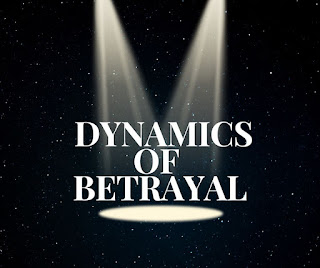The Crucial Importance of Small Bids for Connection
One of the most fundamental truths discovered by modern psychological research is the fact that each one of us is literally hard wired for connection with others. Our happiness and integral fulfillment in life is dependent on our ability to maintain and experience these connections.
This is not really a new truth. In the Genesis narrative, after creating the first man, God declares, “It is not good that the man be alone “and so God creates a “helper as his partner” (Genesis 2:18).
In fact, relationship is an essential characteristic of being created in the image and likeness of God. God has revealed that, within his own self, there is an eternal exchange of love between the persons of the Father, the Son and the Holy Spirit. We might also note that one of the significant truths about the fall of Adam and Eve after creation is the loss of connection with God and with each other as a result of sin.
Our human need for connection is met in a variety of relationships in our life. We might ask, what do these truths have to say about married relationships? We might assume that the best and most successful relationships would be those in which couples were skilled at the deepest forms of emotional connection.
Noted marriage researcher John Gottman, studied a large group of newlywed couples over time. He eventually divided this group into what he called relationship masters and relationship disasters. Surprisingly is was not necessarily the depth of relationship that was decisive. The difference between the two groups was based on the simple act of concern or response given by one’s partner.
Gottman describes this an emotional bid or a request for connection. This could be small or large, verbal or non-verbal. It turns out that these small moments of relationship connection have immense importance.
According to Gottman’s research, couples who stayed together turned toward each other’s emotional bids 86 percent of the time, while those who went on to divorce or who reported troubled relationships turned toward each other’s bids only 33 percent of the time.
Obviously the very best situation in a relationship is to develop an ongoing deep and satisfying connection with the other person, but simply responding positive to your partners bid for connection makes a tremendous difference.
Gottman discovered that our response to emotional bids can result in a series of choices on a kind of continuum. We can enthusiastically turn toward our partner and respond, we can simply acknowledge and respond, we can turn away, or we can even turn against our partner.
When we receive an emotional bid, we can choose to:
- Turn enthusiastically toward our partner
- Turn toward our partner
- Turn away from our partner
- Turn against our partner
A significant number of others, however, will make these Bids in a very subtle manner. Our own internal dialogue may be fueled by past shame and emotional wounds and this makes us reluctant to be truly vulnerable. While internally we are saying, “Hey, I want connection with you!” we may only sigh out loud or say some something very ‘safe’ about the weather or our day. Yet we want our partner to notice and comment. If these bids go unnoticed we may even become annoyed and begin to protest or sullenly withdraw from our partner.
What Gottman’s research teaches us is that little things in the relationship matter a great deal. We can make an effort to “turn towards” or partner and to recognize and respond to their emotional bids for connection. Even if we are not perfect at noticing every bid and our response is not always the most understanding, if we make an effort to turn towards out partner the overall effect is positive. This response can literally make or break a relationship.
“Beloved, let us love one another, because love is from God ( 1 John 4:7a).


Comments
Post a Comment
Thank you for your comment on the threefoldcord blog. All comments are moderated.